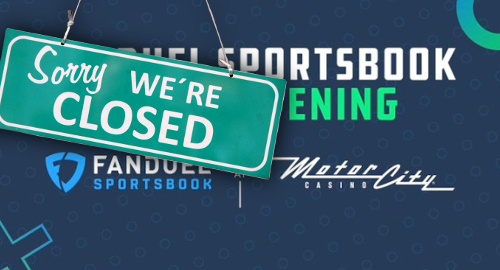 Detroit’s casinos barely got a taste of their new sports betting options before COVID-19 spoiled the party, but the Michigan Lottery’s online sales are likely enjoying a pandemic surge.
Detroit’s casinos barely got a taste of their new sports betting options before COVID-19 spoiled the party, but the Michigan Lottery’s online sales are likely enjoying a pandemic surge.
Figures released Tuesday by the Michigan Gaming Control Board (MGCB) show Detroit’s three commercial casinos all suffered year-on-year gaming revenue declines of nearly 60% in March. The casinos were ordered to close on March 16 as part of the state’s efforts to minimize further coronavirus transmission.
MGM Resorts’ MGM Grand Detroit reported revenue of $23.9m, down 59.6% from March 2019, while MotorCity and Greektown each fell 58.7% to $20.3m and $13.2m, respectively.
The March declines leaned heavily on the market’s Q1 revenue, in which MGM reported $126.5m (-19.7%), MotorCity earned $102.6m (-18%) and Greektown brought up the rear with $70.1m (-16.7%).
All three casinos were cleared to offer retail sports betting last month, with MGM and Greektown launching on March 11 and MotorCity following one day later. During those few days of retail betting, MGM reported revenue of $84,695, Greektown added $15,904 and MotorCity limped in with $4,949. The MGCB didn’t offer betting handle or win percentage figures.
The MGCB has yet to approve any digital sports betting options, leaving local residents to patronize the multitude of internationally licensed online sportsbooks that continue to serve the US market. Michigan has also yet to approve any online casino or poker operators, as allowed under the legislation approved last December.
MICHIGAN iLOTTERY GOING STRONG
There is one locally approved online gambling option courtesy of the Michigan Lottery, which launched online draw ticket and instant win games in 2014. From humble beginnings, the iLottery quickly established itself as the Lottery’s fastest growing vertical.
Last year proved no exception to that trend, with the iLottery reporting net win of $116m in the fiscal year ending September 30. That’s still a relatively minor slice of the overall revenue pie but the sum was nearly one-quarter higher than the $93.7m earned online in fiscal 2018 and nearly 49% better than 2017’s $77.9m.
The iLottery will almost certainly see even faster growth now that players are being urged to self-isolate and many retailers have either boarded up their shop windows or simply ceased offering lottery sales to avoid unnecessary crowds in these trying times.
Meanwhile, other states that have so far dragged their heels on adding an online option to their lottery operations will undoubtedly be kicking themselves for having failed to prepare for this crisis/opportunity.